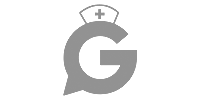Nursing is more than clinical skills — it’s a profession rooted in ethics, trust, and advocacy. Whether you're preparing for the NCLEX or stepping into clinical practice, understanding core ethical principles is essential.
These principles guide everything from patient communication to end-of-life care, and are frequently tested in both the Psychosocial Integrity and Safe and Effective Care Environment NCLEX categories.
What Are the Core Ethical Principles in Nursing?
There are five foundational principles every nurse should know: autonomy, beneficence, nonmaleficence, justice, and fidelity. These concepts guide your behavior and decisions in clinical practice and on the NCLEX exam.
1. Autonomy
Definition:
Autonomy means respecting a patient’s right to make informed decisions about their own healthcare.
In Practice:
You must present all options, answer questions honestly, and never pressure a patient into a treatment — even if you believe it’s in their best interest.
Scenario:
A patient with stage 4 cancer decides to stop chemotherapy. You educate, support, and respect their decision.
📌 Related: What to Know About Psychosocial Integrity for the NCLEX Exam
2. Beneficence
Definition:
Actively doing good for the patient — promoting health and well-being.
In Practice:
Encourage wound care compliance, advocate for updated pain meds, or help a patient access mental health resources. Every step should aim to benefit the patient.
Scenario:
A nurse adjusts the room temperature and administers PRN pain medication to a post-op patient to promote comfort and healing.
3. Nonmaleficence
Definition:
“Do no harm.” This principle is about avoiding injury, both intentional and unintentional.
In Practice:
Double-check medications, pause before giving unfamiliar treatments, and question unsafe orders. Patient safety always comes first.
Scenario:
Before administering a new antibiotic, the nurse verifies allergies, ensuring the patient doesn’t receive a medication that could cause anaphylaxis.
📌 Review safety procedures in: Infection Control Practices for NCLEX
4. Justice
Definition:
Fair and equal treatment for all patients, regardless of race, gender, background, or ability to pay.
In Practice:
Provide equal care to uninsured patients, avoid bias, and advocate for fair resource distribution.
Scenario:
Two patients arrive in the ED at the same time. One is affluent, the other is unhoused. You triage based on severity — not socioeconomic status.
📌 Learn more: Different Categories of the NCLEX Exam
5. Fidelity
Definition:
Loyalty, faithfulness, and keeping your word.
In Practice:
Follow through on promises. Respect confidentiality. Be honest even when the truth is difficult.
Scenario:
A patient asks, “Will this hurt?” You respond with empathy and honesty, reinforcing their trust in you.
Why Do These Principles Matter?
✅ 1. Patient Advocacy
Ethical principles help you stand up for what’s right — especially when the patient can’t.
✅ 2. Ethical Decision-Making
They provide a moral compass when dealing with tough calls like end-of-life care, refusal of treatment, or conflicting priorities.
✅ 3. Patient-Centered Care
They ensure each patient’s individual values are honored and respected.
✅ 4. Legal & Professional Protection
Practicing ethically helps avoid legal complications and protects your nursing license.
📌 See: Mastering the NCLEX: Study Habits That Work
Ethical Principles in Specialized Settings
Pediatrics
In pediatric care, autonomy becomes shared between the parent and the child (as age-appropriate). You must advocate for the child's best interest while respecting family dynamics.
Example:
When parents refuse a medically necessary treatment, the nurse may need to escalate the concern to protect the child — blending beneficence with legal advocacy.
Mental Health
In psychiatric nursing, autonomy and nonmaleficence often conflict. A patient may refuse treatment that could harm them or others, so the nurse may need to initiate involuntary interventions.
Hospice
Ethical care in hospice emphasizes autonomy, dignity, and nonmaleficence. Nurses must support end-of-life wishes even when families struggle to accept those choices.
Ethical Dilemma Practice: What Would You Do?
A 14-year-old girl requests birth control but asks you not to tell her parents. What’s the most ethical action?
- A) Tell her parents — she’s a minor
- B) Refuse to help — it’s not your job
- C) Explain confidentiality limits and local laws, and provide safe, respectful guidance ✅
Answer: C — Balancing autonomy, beneficence, and legal scope is the ethical path.
Sample NCLEX Ethics Questions
Question 1:
A patient with terminal cancer refuses further treatment. The family begs you to continue care. What should the nurse do first?
A) Start treatment to avoid upsetting the family
B) Educate the family about the patient’s rights ✅
C) Encourage the patient to reconsider
D) Consult the ethics committee
📌 Correct Answer: B — Respecting autonomy and educating family members are critical.
Bonus: Study Smarter with AI
AI platforms like GoodNurse can help you master ethics and other tricky NCLEX topics by generating questions, giving instant feedback, and adapting to what you’re struggling with.
📌 Learn how: How AI Is Transforming Nursing Education in 2025
Conclusion
Nurses aren’t just caregivers — they are ethical leaders. Understanding autonomy, beneficence, nonmaleficence, justice, and fidelity prepares you not just to pass the NCLEX, but to deliver truly compassionate and equitable care.
By applying these principles in all practice areas — from pediatrics to mental health — you ensure patient dignity, trust, and safety at every step.
Further Reading on GoodNurse
- How AI Is Transforming Nursing Education in 2025
- NCLEX Study Tips That Actually Work in 2025
- Different Categories of the NCLEX Exam
- Mastering the NCLEX: Study Habits That Work
- What to Know About Psychosocial Integrity for the NCLEX Exam






